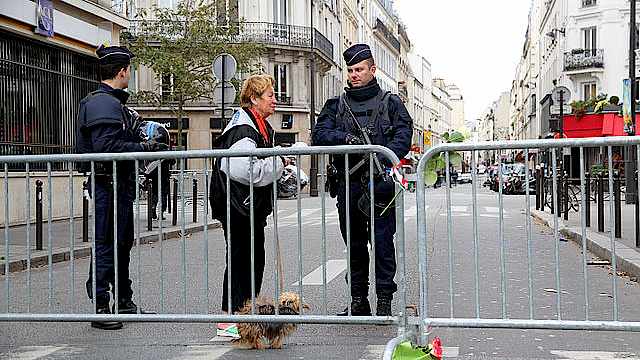With their recent horrific attacks and no apparent end in sight to the conflict in Syria and Iraq, it may seem that there is little understanding of ISIS. However, research in universities is leading the way both in understanding and disrupting ISIS and this research is an invaluable resource to those tasked with fighting them.
Academics from across the world have made tremendous advances in understanding why people join violent groups like ISIS and also how they manage to do so.
For example, much popular discussion of Islamist attacks focuses on the role of religion in motivating violence. But research has shown that while there is certainly a role that ideologies play – both in providing the prism through which people understand the world, what is deemed right and wrong, and what is non-negotiable and should be defended with violence, we also know that religion is only one of a number of factors to be considered.
One way in which religion does play a role is that people and groups tend to seek out more extreme beliefs at times of uncertainty. This can help us see how better education about religion and providing people with the critical thinking skills to challenge toxic ideologies can help them help themselves when confronted with extremist values.
Many years of research on cults has led to a greater understanding of how disenchanted people find a sense of meaning in high-cost groups who often ask them to cut off ties with their families and friends.
We know that the reasons people join these groups are highly individualised, and that tells us how we can support them out of those potentially damaging situations – something useful to consider in the kinds of prevention programmes that provide tailored support for individuals vulnerable to radicalisation, such as the UK’s Channel programme.
Research has also highlighted the importance of social networks for people making the decision to join extreme movements. In research on far-right groups, we know that people find it easier to join these groups when they already know other people involved. This helps us understand the causes of block-recruitment of many young people from the West to join the fighting in Syria, for example.
From these studies of the role of social networks, and of cults, we know that there is a confirmation bias in the way people in these groups view the world – where their views are reinforced by like-minded people.
In the West, a lot of the focus on the conflict in Syria and Iraq has been in trying to understand this apparently new phenomenon of migration to conflict zones – by what are commonly seen to be ‘foreign fighters’. However, historical research has shown that over the past 250 years around 100,000 people have undertaken similar journeys for a wide range of reasons, including to fight.
While there is quite rightly much concern about what people may do when they return to their home countries, we’re also starting to understand the scale of that threat – with evidence suggesting that less than 10% of returnees from a foreign conflict are involved in violence back home and how the blanket removal of citizenship to prevent return may, in the long run, be counter-productive.
Research into lone-actor terrorists (let’s not glamorise them by calling them lone-wolves) has shown how many leak news of their attacks beforehand. It has also helped us to understand the role that personal events, such as experiencing prejudice or other causes of severe stress, play in the run-up to acts of lone-actor terrorism.
Working with the intelligence agencies
Importantly, much is being done to share all this research (and more) with policy-makers and practitioners to use in legislating against and seeking to prevent terrorism in all its forms.
For example, the website RadicalisationResearch.org, funded by Research Councils UK, has curated high-quality academic work on radicalisation, fundamentalism, and extremism since 2010.
More recently, a new Centre – the Centre for Research and Evidence on Security Threats, or CREST – led by Lancaster University in partnership with the universities of Birmingham, Cranfield, Portsmouth and the West of England, has been set up with funding, via the UK Economic and Social Research Council, from the UK security and intelligence agencies.
This innovative partnership demonstrates the value placed on academic research in this area and the way it can directly inform the fight against terrorism.
CREST’s work builds on the research highlighted above through its programmes on beliefs and values which explore how someone comes to hold violent extremist views.
However, it also has programmes that can help disrupt planning of terrorist plots and investigate those involved. For example, through research on deception detection we know much more about the non-verbal cues that help differentiate liars from truth-tellers, how interviewing suspects and witnesses over the phone doesn’t make any difference to the ability to spot deception and how structured note-taking can help investigators aid evidence retrieval.
Other CREST programmes focus on how organisations like businesses can increase their security through improvements in social and not just technological practices, and research on how offline behaviour can be changed through online practices.
The threat from ISIS is constantly evolving, with new technologies and tactics often challenging the abilities of those tasked with keeping us safe. Academics around the world can, and do, play a leading role in meeting those challenges.
Original post on World University News at: http://www.universityworldnews.com/article.php?story=20151120141934972






